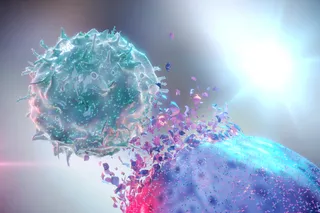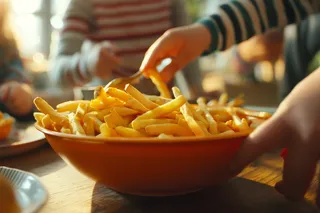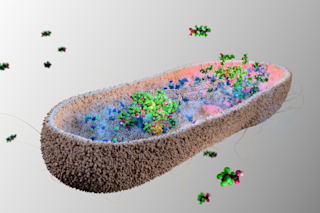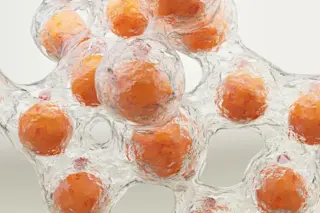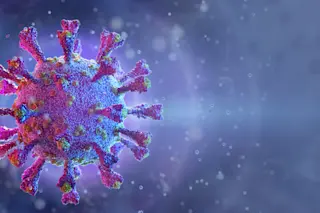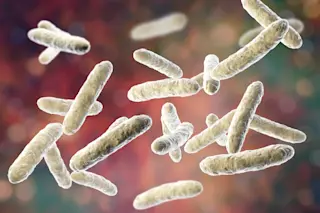Eating red meat could make your body more vulnerable to a dangerous bacterial toxin, according to a new study. A sugar molecule, Neu5Gc, found in beef, lamb, pork, and unpasteurized milk can attach itself to the cells lining the human intestines and act as a magnet for toxins produced by certain strains of E. coli, often carried in the same meats. The result is bloody diarrhea and sometimes death.
"This uncovered the first example of bacterium causing disease in humans by targeting a molecule which is incorporated into our bodies through what we eat," [ABC Science]
says researcher Travis Beddoe. The study, published in Nature [subscription required], was conducted in petri dishes using mouse tissues and human cells.
The scientists tested human gut and kidney cells steeped in these sugar molecules and discovered that the toxin was about seven times more likely to bind to these cells if the sugar ...






